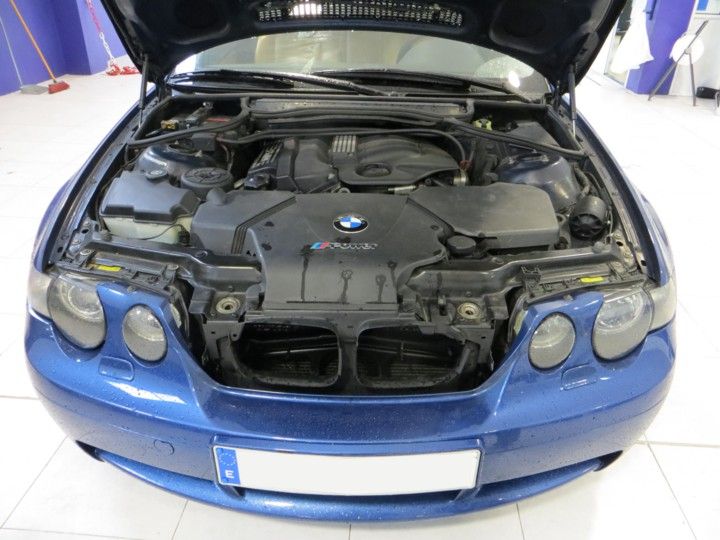Why the BMW 318ti Is a Leading Choice for Car Lovers
Why the BMW 318ti Is a Leading Choice for Car Lovers
Blog Article
Vital Factors To Consider for Selecting the Ideal Engine for Your Requirements
In the realm of selecting the perfect engine to satisfy your needs, numerous essential elements demand precise consideration to make sure ideal efficiency and performance. From the nuanced equilibrium between power and efficiency to the often-overlooked elements of maintenance and solution requirements, each element plays a critical role in determining the most ideal engine for your specific requirements. As the intricacy of engine innovations remains to advance, critical the most fitting choice requires a deep understanding of the interplay in between numerous factors to consider. By checking out the detailed internet of elements that underpin this decision-making process, a more clear path emerges in the direction of picking an engine that not just meets but surpasses your expectations.
Power and Efficiency
When evaluating engines for optimum performance, it is vital to focus on both power outcome and efficiency. Power result determines the ability of an engine to produce power, which directly impacts its efficiency. A high power output is important for requiring tasks such as sturdy applications or high-speed requirements. It ensures that the engine can manage the work efficiently and effectively. However, power alone is not adequate; effectiveness plays a significant role in establishing the overall performance of an engine. Effectiveness refers to how well the engine converts fuel into usable energy. A more efficient engine will certainly supply better gas mileage, reduced exhausts, and lowered operating costs. Striking the right balance between power outcome and efficiency is key to choosing an engine that fulfills your certain requirements. It is necessary to think about variables such as the meant usage of the engine, ecological impact, and long-lasting price implications when making this choice. By meticulously reviewing both power and efficiency, you can choose an engine that delivers optimum performance and fulfills your demands successfully.
Fuel Efficiency and Economic Situation
In the realm of engine option, the factor to consider of fuel efficiency and economy holds extremely important importance. Fuel efficiency refers to the engine's capacity to convert fuel right into energy with very little waste, straight influencing operating expenses and ecological sustainability. bmw 318ti. When selecting an engine, assessing its gas economic climate is crucial to establish long-term cost savings and ecological effect. Engines with higher gas performance not only reduce gas expenses yet also lower carbon discharges, adding to a greener procedure.

Compatibility and Application
Taking into consideration the gas effectiveness and economic climate of an engine, the following critical aspect to address is its compatibility and application within details functional contexts. Compatibility describes exactly how well the engine incorporates with the redirected here total system or devices it powers. It includes elements such as physical dimensions, placing choices, electrical user interfaces, and control systems. Making certain compatibility is necessary to prevent concerns such as overheating, vibrations, or power inequalities (bmw 318ti).
Various engines are made for certain purposes, whether it be commercial machinery, aquatic vessels, autos, or power generators. Understanding the designated application allows for the option of an engine that can deliver the required power outcome, torque, and functional characteristics.
Maintenance and Solution Demands
Maintenance and service needs play a crucial role in making certain the longevity and optimal performance of an engine. Routine upkeep is important to avoid break downs, prolong the lifespan of the engine, and keep its effectiveness. When picking an engine, it is crucial to think about the supplier's suggested maintenance schedule and the schedule of solution facilities or qualified professionals.
Factors such as the frequency of oil adjustments, filter replacements, and general evaluations can dramatically impact the engine's performance. Some engines may require even more frequent maintenance based on their style and use, while others may have longer periods between upkeep checks. It is vital to comply with these service requirements to avoid pricey repairs and unexpected downtime.

Expense and Budget Factors To Consider
Spending plan restrictions usually play a substantial function in the decision-making process when picking an engine for a certain application. When thinking about the cost and spending plan effects of choosing an engine, look these up it is necessary to evaluate not just the preliminary purchase price but additionally the long-lasting costs connected with maintenance, gas consumption, and potential upgrades or repairs. It is essential to strike an equilibrium between the in advance price of the engine and its overall lifecycle expenses to guarantee that the picked engine stays monetarily sustainable throughout its operational life-span.
Variables such as fuel dependability, performance, and sturdiness can directly impact the total price of ownership of an engine. While an extra pricey engine might have greater ahead of time costs, it might potentially lead to reduced upkeep and fuel expenses in time, therefore supplying better value over time. In addition, thinking about the availability and cost of spare parts, along with the ease of upkeep and solution, can help prevent unexpected financial pressure in the future. By carefully examining these price and budget considerations, you can make an informed choice that aligns with your functional requirements and financial constraints.
Conclusion
Fuel performance refers to the engine's capability to transform gas into energy with minimal waste, straight influencing operating expenses and ecological sustainability.Elements influencing fuel performance consist of engine design, burning click this site efficiency, and overall efficiency optimization. Additionally, selecting the appropriate fuel kind and quality as suggested by the engine maker can additionally enhance efficiency and prolong engine lifespan.
Engines with great service functions and readily offered parts can reduce maintenance costs and reduce the time the engine is out of procedure - bmw 318ti. It is essential to strike an equilibrium between the upfront cost of the engine and its overall lifecycle prices to guarantee that the selected engine stays economically sustainable throughout its functional lifespan
Report this page